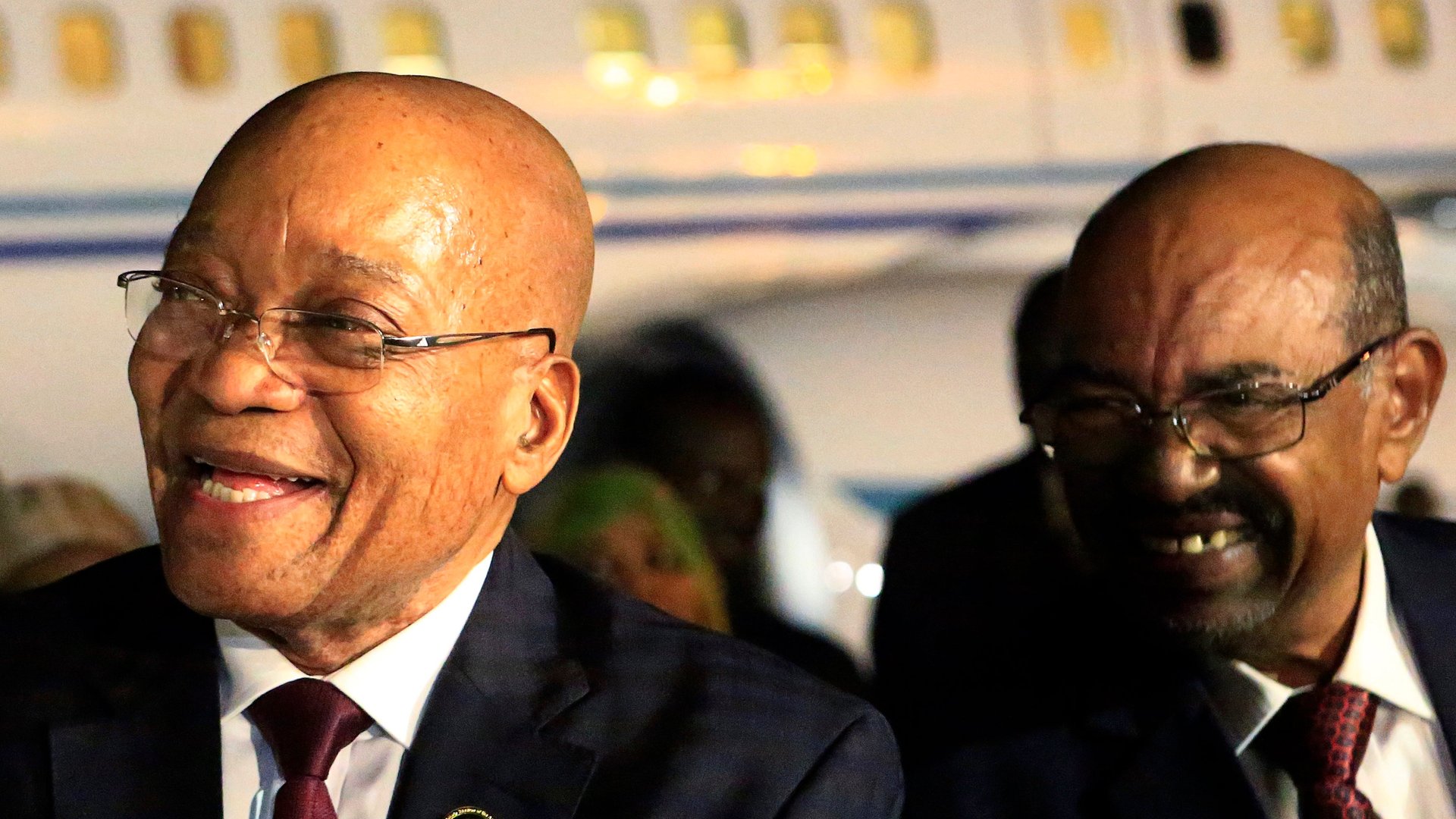South Africa quits the International Criminal Court
South Africa is leaving the International Criminal Court, sparking speculation that other African nations could follow suit and quit the court. Justice Minister Michael Masutha confirmed the decision in a televised press briefing Oct. 21. The decision was taken by South Africa’s executive and will be finalized in a year, he said. Just last week, Burundi decided to withdraw from the ICC.


South Africa is leaving the International Criminal Court, sparking speculation that other African nations could follow suit and quit the court. Justice Minister Michael Masutha confirmed the decision in a televised press briefing Oct. 21. The decision was taken by South Africa’s executive and will be finalized in a year, he said. Just last week, Burundi decided to withdraw from the ICC.
African leaders have long complained that the ICC is biased against them, even though South Africa and many African states were founding members of the court, based in The Hague in the Netherlands. The court was founded to help prosecute war crimes, genocide and crimes against humanity that would often be ignored in individual countries because the crimes implicated high-ranking military or political leaders.
South African minister Masutha said the decision was motivated by a Supreme Court ruling related to the visit of Sudan’s president Omar al-Bashir, who is wanted by the court. The minister said the country’s membership of the ICC was at odds with its obligations to provide diplomatic immunity to visiting dignitaries. He also said the country’s membership in the ICC made negotiating peace on the continent more difficult, without saying how or why. South Africa would maintain its commitment to human rights through other international bodies such as the African Union, Masutha said.
The country’s minister of international affairs gave notice to the United Nations on Oct. 19, according to a letter obtained by the Associated Press.
“The Republic of South Africa has found that its obligations with respect to the peaceful resolution of conflicts at times are incompatible with the interpretation given by the International Criminal Court,” the notice reads. South Africa ratified the Rome Statute, the law enacting the powers of the court, in 2000.
South Africa flouted ICC rules last year when the country hosted al-Bashir during the African Union summit. Al-Bashir is wanted for atrocities committed during the Darfur conflict, in which at least 300,000 people are believed to have been killed. Under court rules, South Africa should have surrendered the Sudanese president to officials in The Hague.
A South African judge ordered that al-Bashir be prevented from leaving South Africa after lawyers at the Southern Africa Litigation Centre brought an urgent interdict to the court to compel the government to arrest al-Bashir. South African officials ignored the ruling and allowed al-Bashir to return to Sudan.
After years of accusing the ICC of targeting them, African leaders are now taking action even though many ICC cases are brought by African citizens. Burundi became the first country to begin withdrawal last week when the country’s parliament voted in favor of leaving the ICC on Oct. 12. The ICC is investigating electoral violence in Burundi that left dozens dead and extended president Pierre Nkurunziza’s rule.
Kenyan lawmakers tabled a bill in parliament in June to withdraw from the court after president Uhuru Kenyatta and deputy president William Ruto faced charges related to electoral violence in 2007 and 2008. Those charges were later withdrawn.
Human rights activists are alarmed at the withdrawals. “It’s important both for South Africa and the region that this runaway train be slowed down,” Dewa Mavhinga, a senior researcher with Human Rights Watch in southern Africa, said in a statement.